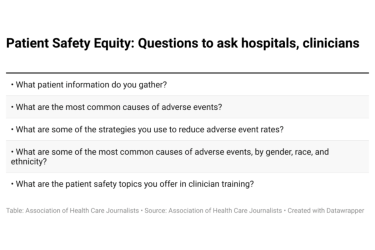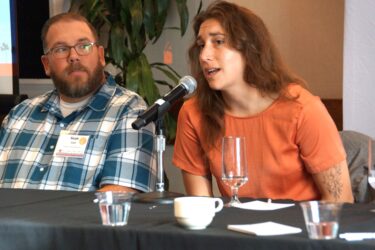
A pinned tweet touting the latest superfood. A Facebook post on vaccines. Advice from a neighbor or friend. A poster or billboard. Google.
Health information is blasting out to the public in ways it has not before. And if you think it’s hard for health journalists to make sense of the maze of conflicting data or complex studies, imagine how difficult it can be for the public to understand health and make sound choices.
Enter health literacy.
On May 11, we’re offering a webcast with Harvard University’s Rima Rudd, M.S.P.H., Sc.D., a health literacy expert who served on the original Institute of Medicine Health Literacy Committee. A faculty member of Harvard’s Department of Social and Behavioral Sciences for more than 25 years, Rudd will offer a look at recent changes in approaches to health literacy and take members’ questions.
I’ve also added some resources in AHCJ’s social determinants of health care core topic area with an eye toward health literacy, and will add more in the weeks and months ahead.
Check out Boston University’s “tool box” of health literacy data and other resources, including ways to explore one’s understanding of various issues from diabetes to colon cancer. The U.S. Department of Health and Human Services’ also offers a good primer on the topic on the Health Resources and Services Administration website.
In the webcast, we’ll discuss how health care providers are – or are not – tackling health literacy issues as well as the ever-evolving impact of the Internet.
For example, in a recent issue of the Proceedings of the National Academy of Sciences, researchers looked at the role of online information on people’s understanding of health and well being.
“Users tend to aggregate in communities of interest, which causes reinforcement and fosters confirmation bias, segregation, and polarization. This comes at the expense of the quality of the information and leads to proliferation of biased narratives fomented by unsubstantiated rumors, mistrust, and paranoia,” they wrote.
We’ll discuss that as well as the latest on health literacy and probe possible story ideas on May 11 – please join us.
Further reading:
- U.S. HHS National Action Plan to Improve Health Literacy
- IOM Health Literacy factsheet
- Wisconsin Public Radio: Understanding Health Care System Remains A Major Challenge For Many Americans
- Boston Globe: Zika and the trouble with health directives
- Kaiser Health News: Do You Speak Health Insurance? It’s Not Easy.
Have an interesting resource on health literacy that others could use? Written your own interesting stories on the topic? Send them to me at determinants@healthjournalism.org.








